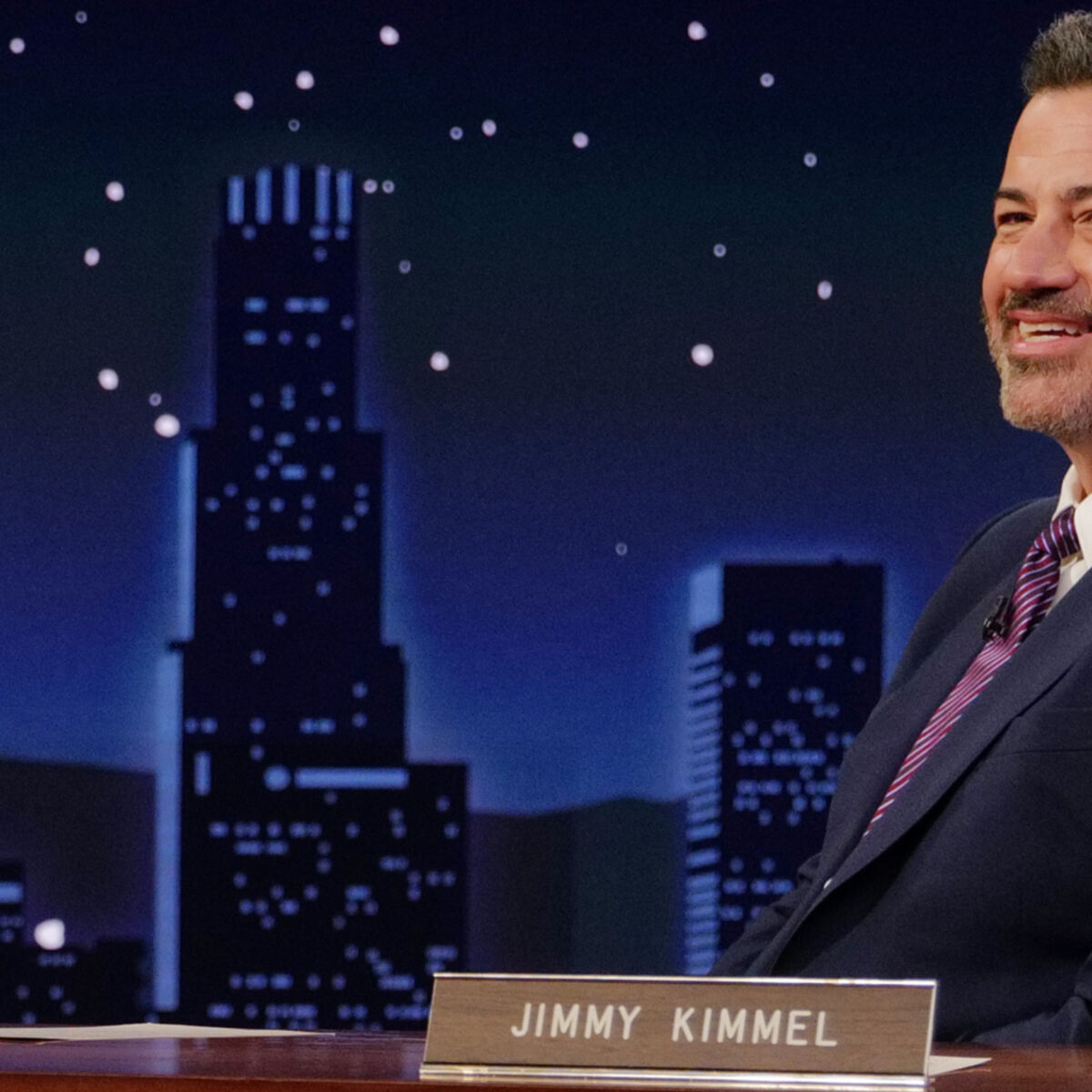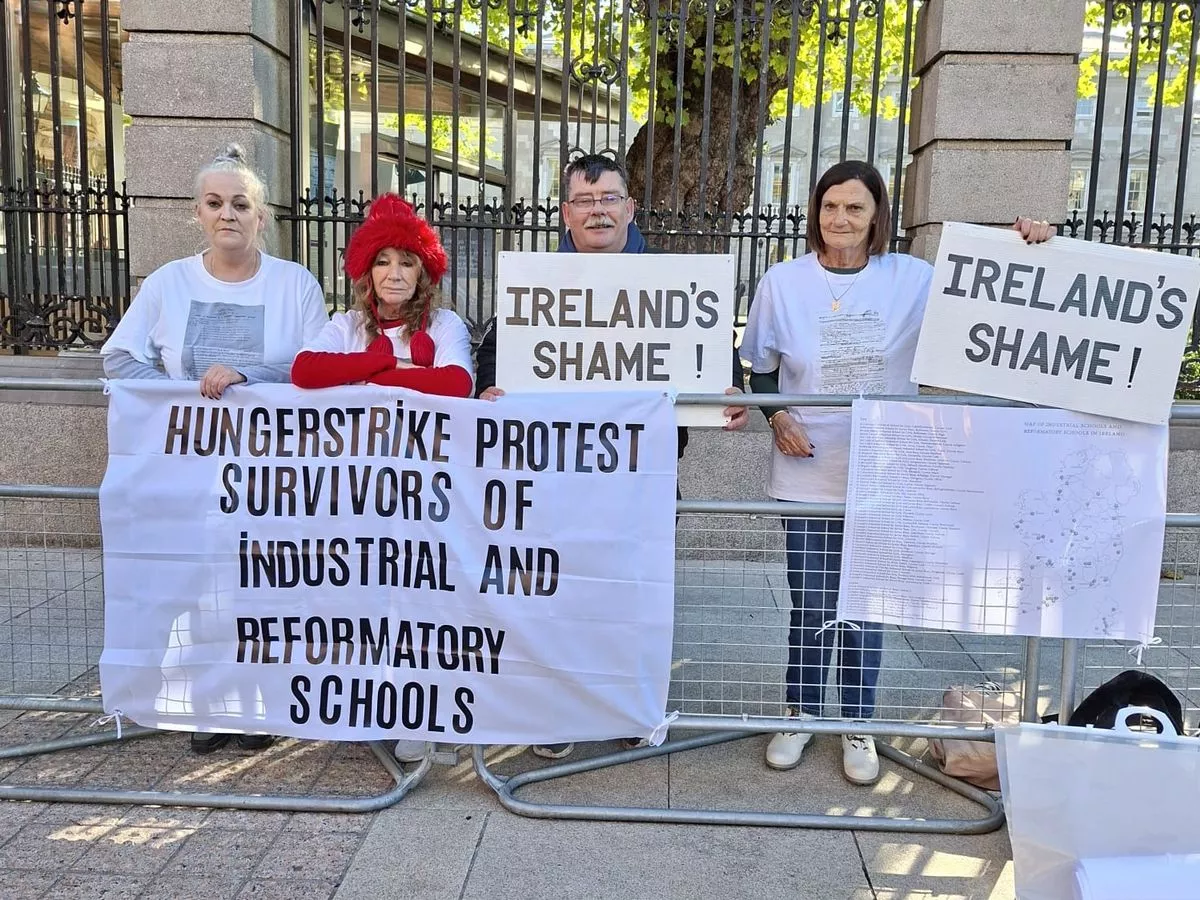Copyright irishexaminer

Days later, in Boston’s iconic Music Hall, Douglass rose to his feet and did what anyone who seeks to protect free speech would do — he spoke up. His words are regarded as a timeless testimony to the importance of free speech. He called freedom of speech the great “moral renovator” — a power that enables us to remake ourselves. That power has never been questioned so much in recent times as it was this week. US chat show host Jimmy Kimmel returned to his late-night talk show on Tuesday following his humiliating suspension for — as many media reports claimed — “making jokes” relating to the death of conservative influencer Charlie Kirk. Kimmel is a comedian. It’s his job. With nightly audiences of almost two million, his salary runs to eight figures. When did we reach the point where a comedian has to ask for permission to make an audience laugh? I listened to the monologue that resulted in him being taken off air. His comments were satirical observations aimed mostly at Donald Trump and FBI director Kash Patel, not Kirk. It could be argued that in an age of extreme political and cultural sensitivity, humour in the name of free speech can easily hurt hubris. Or, in its extreme, can deeply offend. But if we place so much importance on free speech, then surely there’s little room for sensitivity. Clearly not when you’re the president. What exactly is free speech, considering its relevance in recent days? It’s the right to express opinions and ideas without government restraint; to be able to articulate our thoughts and views without fear of retaliation, censorship, or punishment. It includes the right to peaceful protest, to agree or not with those in power, and to access justice and enjoy our human rights. So when does free speech become hate speech? When it involves expressions that attack or demean individuals because of their race, religion, or sexual orientation. It’s a grey area in the US because views and opinions people call hate speech are legally protected under the First Amendment. Hate speech lacks a formal legal definition in America unless it includes an incitement to violence. Noam Chomsky best summed it up when he said: “If you’re really in favour of free speech, then you’re in favour of freedom of speech for views you despise”. In the run-up to the memorial service for Charlie Kirk last Sunday in Glendale, Arizona, the fear of recriminations for the right-wing activist’s killing could not have been far from the minds of the hundred thousand supporters who packed State Farm Stadium in his honour. What exactly was it that they admired about this polarising figure who was hailed on the day as a “martyr” and “warrior” for conservativism? To answer that requires me to be devil’s advocate. I have never been a supporter of Kirk — I knew very little about him before he was killed — but I am in favour of free speech. So where does that leave me? Since his death, I’ve watched some of Kirk's videos and read a lot of his diatribe. He matched his views with a great command of language. He was a superb debater. The ‘Prove Me Wrong’ sessions in which he would face off against students on campuses across the US to debate his contentious views rallied an entire youth movement. Was that what made him popular with his supporters? Possibly, but the ingredient he added liberally was that he listened. For free speech to work, listening is as important as talking. Kirk engaged with his mostly student audiences by listening to their fears and their legitimate grievances — like an eldest sibling looking out for his younger brothers. These people came from conservative Christian backgrounds. He wore his evangelical beliefs on his sleeve; that was the connection. In Kirk’s world, being a racist and a xenophobe was acceptable because his own fundamental views of a Christian American faith included that. Was that hate speech? Not in America. History will decide his legacy, but it’s his sowing of ideological division and his demonising rhetoric that he should be remembered for. He was building a corrupt but united movement that was oblivious to other people’s reality. His attitude towards gay and transgender rights was particularly polarising. One gay activist Josh Helfgott, best known for his TikTok series Gay News, called Kirk “the loudest homophobe in America”. In his book The Righteous Mind: Why Good People are Divided by Politics and Religion, Jonathan Haidt says: “Morality binds and blinds. It binds us into ideological teams that fight each other as though the fate of the world depended on our side winning each battle. It blinds us to the fact that each team is composed of good people who have something important to say.” I was reminded of Haidt’s words during Kirk’s service when his widow Erika forgave his killer. “I forgive him,” she almost whispered to a rapt audience. I hadn’t been expecting it. She stood side by side with Donald Trump. Two voices, one of forgiveness, the other revenge. At his acceptance speech in New York in November 2016, Trump said, “We will seek common ground, not hostility; partnership, not conflict”. Last weekend, he voiced his hate for those same opponents and vowed to target “radical left maniacs”. Frederick Douglass spent four months in Ireland in 1846. He described his time here as “transformative”. For the first time ever he felt like a man, he said, not a chattel. Slavery was abolished in the US in 1865, but the divisions it left behind are deep, and hate is filling the spaces between. I’ve been a Jimmy Kimmel fan for 20 years. His reinstatement shows free speech is democracy talking. Without it there wouldn’t be any defence lawyers, or school debates, or journalists reporting the news we read. As for Erika Kirk, it wouldn’t surprise me if she were to run for president in years to come. Just like the ability to divide, the ability to heal comes from words we choose to empower others. Her words last week send a strong message to those who use the legitimate platform of free speech as a thin disguise to spread hate. Hate brings consequences — the more you hate, the more isolated you become. On his X account in May last year, Charlie Kirk wrote that “Hate speech does not legally exist in America”. If he had survived the assassin’s bullet, I wonder would he still feel the same way?



